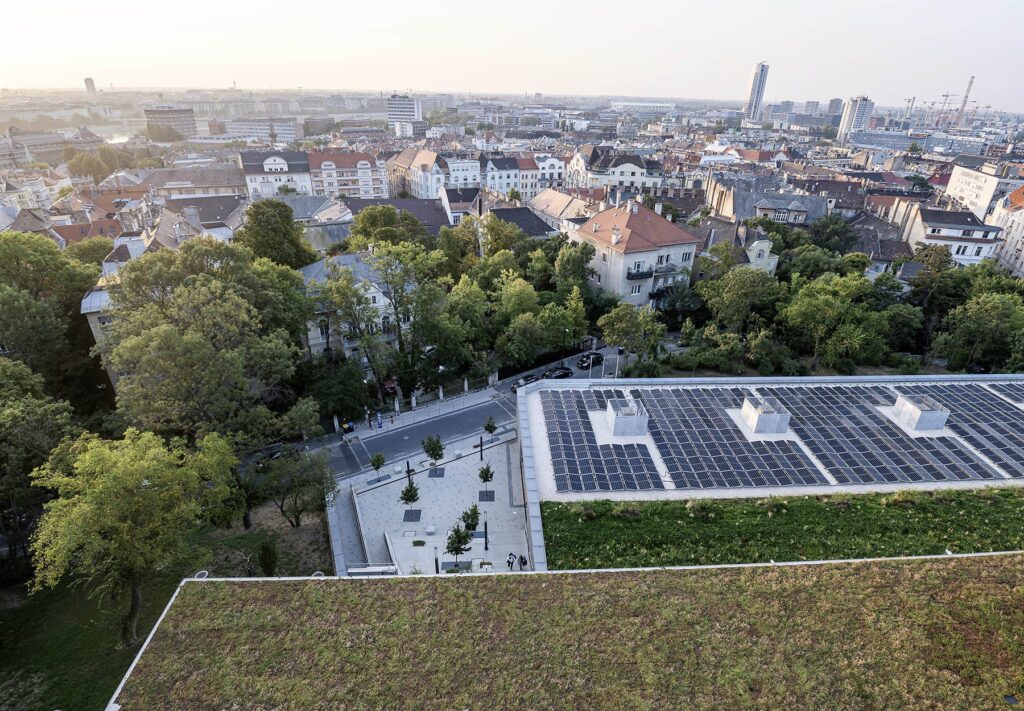Six Countries Join Forces to Align Regional Development with Nature
Led by Corvinus University of Budapest, a €1.4 million European initiative aimed at making regional development investments more sustainable. Global Biodiversity Finance Pioneer Endorses NATUREFIN’s Policy Ambition.

Water scarcity, land use, and biodiversity loss are just a few examples of the environmental challenges that not only governmental and local authorities face but also businesses, which increasingly encounter these issues when making investment or operational decisions.
The international NATUREFIN project, led by Corvinus University, promotes sustainable finance in the European regions through the development of policy tools and the active engagement of local businesses. The initiative not only supports companies in their transition to sustainability but also aims to create regulatory coherence between regional development policy instruments and the European Union’s sustainable finance regulations.
A bridge between finance, nature and regulation
Professor Andrew Karolyi, a world-leading voice in sustainable finance and Dean Emeritus of Cornell University’s SC Johnson College of Business and member of the International Advisory Board of Corvinus, endorsed the NATUREFIN project for its cutting-edge policy relevance.
Widely recognized as a leading voice in sustainable finance academia, Karolyi first introduced the term climate finance into academic discourse in 2020. In his influential 2023 paper, co-authored with legal scholar John Tobin-de la Puente, he advanced the discipline further by coining the term biodiversity finance—a rapidly growing field concerned with the integration of nature-related risks and values into financial decision-making.
In his video statement supporting NATUREFIN, Karolyi underscores that “policy decision-makers cannot manage what they cannot measure and understand.” He emphasises that aligning regional development strategies with nature preservation is critical and sees the NATUREFIN project as “instrumental in bridging the complex gap between finance, nature, and regulation.” His message is a strong signal to policymakers and academics alike that localised policy innovation, grounded in robust sustainable finance methodologies, is central to addressing the biodiversity crisis.
“Our goal is to ensure that economic development is achieved not at the expense of nature but with its preservation, relying on sustainable financial resources. NATUREFIN’s innovative approach is based on using sustainable finance tools to align environmental and economic goals. It’s not just about pricing nature’s value, but also about learning to see and value it differently in our daily decisions,” said Dr. Helena Naffa, lead researcher, Associate Professor at Corvinus University, and Head of the Sustainable Finance Research Centre (SFRC).
Tools for companies to identify environmental risks
The initiative is supported by the EU Interreg Europe programme. Launched in May 2025, it will run for four years with a total budget of approximately €1.4 million. Seven partner institutions from six European countries are involved: Hungary, Albania, Greece, Spain, Finland, and Portugal. The desired outcomes include ensuring that companies – whether subject to the EU sustainability regulation, acting as suppliers in an international value chain, or seeking to raise sustainable capital – do not face conflicting expectations. Instead, they should be able to meet the “DNSH – do no significant harm” principle and other sustainability requirements within a unified regulatory framework.
The project is impact driven, that targets to improve the policy instruments of the participating regions. The project partners aim to integrate the environmental impacts and ecological risks into regional strategies and ensure that the regulatory environment aligns with the criteria for sustainable finance. This will help businesses in the regions operate legally while remaining competitive.
NATUREFIN also provides practical support for the private sector: companies will gain access to tools and knowledge that will help them identify their environmental risks and meet investors’ sustainability expectations—such as demonstrating that their activities do not cause significant environmental damage. Regional authorities will also gain new opportunities to access green financial tools, such as green bonds or sustainability-linked loans, to support their environmental goals.
First results
The programme’s launch meeting and first study tour took place in June 2025 in Budapest and Kaposvár. At Corvinus University’s FinLab financial lab, consortium partners analysed the biodiversity risks of six European companies using satellite imagery and financial data. They examined how environmental factors like water scarcity, wildfires, biodiversity health, and nature-friendly corporate governance influence investment decisions, regulatory compliance, and sustainability assessments. The companies analysed are heavily dependent on ecosystem services, which is one of the key indicators of nature-related physical risks.
The event also featured workshops, professional presentations, and site visits to sustainable food industry companies.
Researchers emphasised that to advance sustainable finance, dialogue with stakeholders is essential, and policies must be tailored to their feedback.